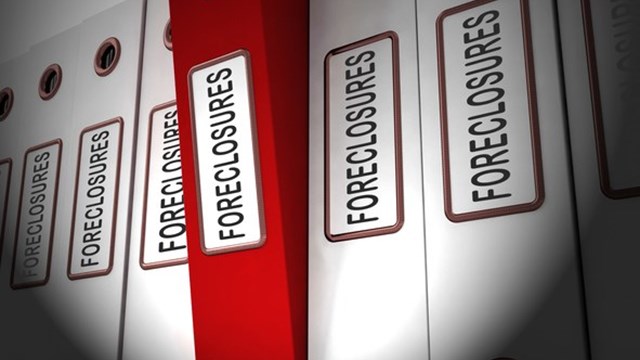Global financier JP Morgan Chase owes the Keys Gate Community Association, Inc., in Homestead almost $20,000. The bank foreclosed on the borrower of a condominium unit and took title to it, then paid no maintenance fees for almost two years.
Ben Solomon, managing partner at Association Law Group, a Miami-based law firm specializing in collections, says JP Morgan Chase recently “dumped the unit at its own foreclosure sale (at less than 25 percent of its original loan amount) to an unsuspecting purchaser, who will now be held jointly and severally responsible with JP Morgan for the past due amounts,” Solomon says.
The association sued the bank. When JP Morgan Chase did not respond to the association’s lawsuit, the association asked the court for a summary judgment. The request is pending.
A recent article in the Palm Beach Postdetails a situation involving a foreclosed condo belonging to Wells Fargo bank. Wells Fargo Bank is responsible for a West Palm condo unit that they foreclosed on because of an unpaid $197,000 mortgage. The bank took ownership of the empty condo last year. As in the above situation, the bank never paid the $260 monthly maintenance fees to the association. And to make matters worse, the physical condition of the bank’s empty condo deteriorated.
A mold issue developed due to a faulty washer-dryer hookup, according to association president Alan Meltzer, who has made a point of going after the bank to fix the unit. “We had to gut the apartment,” Meltzer told the newspaper. “It was a big job. They had to go in with hazmat suits.” The Forest Condominium Association filed a lien against the bank, estimating that the mold repairs and the accumulating monthly maintenance fees owed by Wells Fargo to the association was $23,210.
When Meltzer got no response from the bank, the condo association took the next step, foreclosing on the bank’s condo. “We treated them just like we would treat any other owner in the community,” Meltzer said.
In July, the association became the owner of the gutted unit, which in its present condition isn’t worth as much as its outstanding maintenance and repair bills. To remedy that, the association can pursue something called a “deficiency judgment” against the bank, which would pay for the repairs.
These are just some of the examples of the foreclosure crisis impacting condo associations. Throughout South Florida, as the volume of foreclosures continues to increase, condo and homeowners association boards of directors must grapple with a variety of related problems.
The worst of the fallout is in those areas that had enjoyed the biggest boom—especially parts of the west and Florida (which has over 20,000 condo associations). In Fort Lauderdale, for example, one attorney reports on an association where nearly 80 percent of the units have fallen behind, and a unit owner lent money to the association to help pay the bills.
According to RealtyTrac, which compiles foreclosure information nationwide, Miami-Dade County is the fourth most active U.S. foreclosure market. On August 4, 2012, it had 37,361 properties in various stages of foreclosure, including 24,112 in pre-foreclosure. In Broward County, 24,021 properties were affected, including 10,657 in pre-foreclosure. Palm Beach County had a total of 19,207 affected properties, including 10,826 in pre-foreclosure.
In June, one in every 401 housing units in Florida received a foreclosure filing. Palm Beach County topped the state average with one in every 462 units, while the figure was one in 369 units for Broward County and one in 304 units for Miami-Dade County.
In Miami-Dade County, the volume of new foreclosure cases has doubled so far this year, from 6,384 in all of 2011 to 12,828 in the first half of 2012. Solomon says Harvey Ruvin, Miami-Dade County clerk of the courts, is “concerned about the shadow inventory and a new avalanche waiting in the wings.”
Solomon’s firm practices in 16 counties all over Florida, including Miami-Dade, Broward, and Palm Beach. “We’ve handled roughly 10,000 foreclosure cases at a time over the past 24 months,” he says. “I’m concerned that things are so prolonged. Unfortunately, even when banks take title to units through foreclosure and become an owner like any other, we have to file a second round of liens and foreclosures against banks as owners to compel them to pay.”
Matthew Zifrony, a director of the Tripp Scott, PA, law firm in Fort Lauderdale, says almost every city and town in South Florida has neighborhoods hard-hit by foreclosure that are “worse than other parts of the state and most other parts of the country.” Especially impacted are high-rise condos in Miami, he says. “They were built just before the market crashed and were being valued at their peak. Months later, they went down in value. Many are still underwater.”
Leniency vs. Fiduciary Duty
Before suing delinquent owners, most boards will encourage them to erase their deficit. “The goal is never to foreclose an owner or dispossess an owner from title to his property,” Solomon says. He recommends entering into “reasonable” payment plans that give owners more time to pay, and sometimes waiving late fees and interest on the past-due amounts.
“Our firm reduces its legal fees at our discretion to help homeowners,” Solomon says. “We represent the associations, and our fees are included in those past-due balances. We reduce our own fee so the owner can pay less to close the account.”
Jay Steven Levine, president and owner of Jay Steven Levine Law Group in Boca Raton and Palm Beach Gardens, says some associations with tight budgets don’t want to turn over delinquent accounts to an attorney. “They are keeping them in-house,” he says. “Some are using collection agencies as an attorney alternative.”
Boards facing a high delinquency rate “have no choice but to be more aggressive,” Zifrony says. “When they show sympathy to owners, it tends to cause the delinquency rate to go up. People in these communities know what is happening. When the board is aggressive, it tends to reduce the delinquency rate.”
Some associations have a “lien and leave” mentality, Levine says. “They file a lien, threaten foreclosure, and then let it sit. It doesn’t get reported to credit agencies. After a year the lien is unenforceable, so they have to start the process over. Lien and leave communities have higher delinquencies. If owners realize it’s a lot of threats and no action, the word gets out. They say, ‘What’s my incentive to pay when the board doesn’t do anything about it?’ ”
Coping with Absentee Owners
Owners who don’t actually live in a community pose other problems for its board. Some absentee owners move away because they’ve lost a job. If they haven’t abandoned their unit or home, they may rent it out. Others are investors seeking rental income and/or a profit upon an eventual sale. Either way, they tend to become disengaged from the building’s upkeep and repair needs.
Steve J. Weil, president of Royale Management Services, Inc., in Fort Lauderdale, says absentee owners tend not to participate on the board, vote on important matters such as document changes, or uphold the community’s rules. “Absentee owners make getting compliance more difficult,” he says.
Weil tells of non-resident owners running a nail salon or other business out of their condo units; or posting them on Craigslist as weekly vacation rentals. “As people come and go, and the boards try to prevent them, it’s difficult in a condo that doesn’t have full time security. Managers and boards are impotent. We are not the condo cops. The only way to bring people who don’t care about violation notices into compliance is legal action, which involves spending money.”
“Investors don’t maintain their properties as avidly,” agrees Levine. “That creates a run-down look. Absentee or delinquent owners will not be as active in caring for the property. Renters tend to be even less active, and more inclined to violate the documents. They don’t care or follow the rules.”
Sometimes renters bring crime to an otherwise safe community. Armed robbers renting in an HOA in Homestead invaded a neighboring home and killed its owner. “The president of the association was a Miami city detective. He chased down and apprehended the shooter,” Solomon recounts.
The Rental Dilemma
Before 2010, if a tenant occupied a unit where the owner wasn’t paying the association, the association had to take legal action to collect. The 2010 Florida legislature passed a rent demand law that allows the association to “make a written demand that the tenant pay to the association the subsequent rental payments and continue to make such payments until all monetary obligations of the unit owner related to the unit have been paid in full to the association. The tenant must pay the monetary obligations to the association until the association releases the tenant or the tenant discontinues tenancy in the unit.”
Even with the rent demand law in place, the very presence of large numbers of renters in a building or community can adversely affect the market value of individual units and the ability of prospective purchasers to secure loans there. The Federal Housing Authority, Fannie Mae, and Freddie Mac won’t approve financing in a property where residents own fewer than 51 percent of the units or homes. “A high percentage of renters is a sign of other problems an association is having,” Zifrony says. “If the board wants its community to be eligible for federally-guaranteed mortgages, it has to reduce the percentage of renters.”
Limiting the percentage of renters is a double-edged sword. “Boards come to me and say we want to impose a rental cap,” Weil says. “A rental cap hopefully means more vested interest in the property and makes financing easier to get, but if you’ve just lost your South Florida job and are moving to Kentucky, you have to keep your unit vacant because we have a rental cap. That tends to increase defaults.”
Bad Solutions
Faced with a cash-flow crunch and a budget shortfall, associations look desperately for ways to make ends meet. Bankruptcy and waiving reserve contributions are commonly suggested, but few associations actually do these things because they really don’t help.
Bankruptcy is like a Band-Aid on a gaping wound. It can discharge an association’s backlog of unpaid utility bills and other debts, but doesn’t solve the underlying problems that will lead inexorably to a new backlog. “I wouldn’t say it’s a trend yet but you’re starting to hear about more bankruptcy filings,” Levine says.
Voting to waive contributions to the reserves can reduce assessments, but could make the property ineligible for federally-guaranteed financing. Fannie Mae requires a reserve study and a minimum allocation of 10 percent of the association’s annual revenues to fund the reserves. The FHA and Freddie Mac have similar requirements, and so do many private-sector lenders.
When a Community Fails
What happens when a condo or HOA has so many units defaulting on assessments that it lacks money to operate, the property manager resigns, the directors resign from the board, the property is essentially abandoned, and no one is in charge? There are several possible scenarios.
• Receivership.“If an association continues to suffer and struggle and can’t pay its bills, the creditors can have a judge appoint a receiver to step in and make correct decisions,” Zifrony says. The receiver collects assessments from owners, pays the bills, and reports periodically to the court.
“Receivership isn’t a good idea, even in a worst-case scenario,” Solomon says. “The receiver may charge $150 to $300 an hour, and the hours he puts in are totally up to his discretion. The receiver will run the association as a de facto board and get paid for every hour he spends working on or thinking about the association’s problems. He may need to hire an accountant, a lawyer, and other associated vendors. Some receivers could be charging $10,000 a month on a big condo.” Sometimes banks will contribute towards receivership costs.
• Selling the property.Section 718.117 of Florida’s condominiums law provides that “the condominium form of ownership of a property may be terminated by a plan of termination approved by the lesser of the lowest percentage of voting interests necessary to amend the declaration or as otherwise provided in the declaration for approval of termination.”
Typically that means 100 percent agreement or a supermajority of 80 percent, says Zifrony. “This includes anyone who has an interest in the property—the unit owners and all the banks. It would be virtually impossible to get the banks to respond to that request, let alone agree to it.”
Selling a condominium is a two-part process. First the owners would vote to convert from a condominium. Then the property would be sold to one entity—a third party, whether an individual or a company—who would then presumably operate it as a rental apartment complex. This, however, is a theoretical scenario. “I’ve never seen a condo terminated unless it was still under developer control,” Solomon says.
• Bulk sale.Typically this happens in a failed new construction project. An investor may buy the unsold inventory and rent the units out on a short-term basis, intending to sell them when the market improves. The condominium remains unless its owners vote to terminate it.
Ultimately of course, the aim of any community is to remain solvent and stable—and that can be challenging even when there's not a global economic crisis going on. As recessionary conditions evolve, South Florida boards will have their work cut out for them in navigating the legal issues, paperwork, and strategic planning necessary to help their HOAs weather the storm and come through in as good a shape as possible.
George Leposky is a freelance writer and editor living in Miami, Florida, and is a frequent contributor to The South Florida Cooperator.







Comments
Leave a Comment